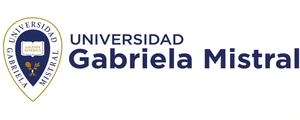Gabriela Mistral University Repository
The Gabriela Mistral University Library has developed the following Academic Repository in order to preserve, disseminate and make available the full-text contents of the academic production developed by the different actors in the academic and research field of the University.
The UGM University at the beginning of the year 2017 incorporated the UCINF University, also adding that collection where we find memories, theses, degree works, academic magazines, speeches, books, digital and sound files. Contact: [email protected]
The UGM University at the beginning of the year 2017 incorporated the UCINF University, also adding that collection where we find memories, theses, degree works, academic magazines, speeches, books, digital and sound files. Contact: [email protected]
Conocimiento y Percepción: El ‘orden de las cosas’ y los cinco sentidos en tres enciclopedias del siglo XIII
| dc.contributor.author | Ortúzar Escudero, María José | |
| dc.date.accessioned | 2019-09-24T15:50:58Z | |
| dc.date.available | 2019-09-24T15:50:58Z | |
| dc.date.issued | 2018 | |
| dc.identifier.citation | Revista Chilena de Estudios Medievales Número 14 julio-diciembre, 2018 pp. 41-51 | es_ES |
| dc.identifier.issn | 0719-689X | |
| dc.identifier.uri | https://hdl.handle.net/20.500.12743/1696 | |
| dc.description.abstract | En la primera mitad del siglo XIII, Tomás de Cantimpré, Bartolomé el Inglés y Vicente de Beauvais intentan reunir todo el saber disponible en un solo volumen. Sus enciclopedias son consideradas como productos idóneos para estudiar la ‘cultura de conocimiento’ de su tiempo: representan un testimonio privilegiado de las diversas corrientes contemporáneas del saber y de sus síntesis. Una de estas corrientes, la apertura hacia el conocimiento de raíz aristotélica, supone una nueva valoración del conocimiento a través de los sentidos. En este ensayo se explora si acaso tal valoración se ve reflejada en el orden y / o en el contenido de las enciclopedias. // In the first half of the 13th-century, Thomas of Cantimpré, Bartholomew the Englishman, and Vincent of Beauvais aimed to gather all available knowledge in just one volume. Their encyclopaedias offer, therefore, a vantage point to study the contemporary ‘culture of knowledge’: They are representative of the different streams of knowledge and their synthesis. One of these streams, the opening towards the knowledge of (ultimately) Aristotelian origin, entails a new understanding of the knowledge that is acquired through the senses. This paper explores if the encyclopaedias reflect this understanding in their order or contents. | es_ES |
| dc.language.iso | es | es_ES |
| dc.publisher | Universidad Gabriela Mistral - Centro de Estudios Medievales | es_ES |
| dc.relation.ispartofseries | Revista Chilena de Estudios Medievales; | |
| dc.rights | Attribution-NoDerivs 3.0 United States | |
| dc.rights.uri | http://creativecommons.org/licenses/by-nd/3.0/us/ | |
| dc.subject | Enciclopedias del siglo XIII | es_ES |
| dc.subject | Percepción sensorial | es_ES |
| dc.subject | Culturas de conocimiento | es_ES |
| dc.subject | Recepción del pensamiento aristotélico | es_ES |
| dc.title | Conocimiento y Percepción: El ‘orden de las cosas’ y los cinco sentidos en tres enciclopedias del siglo XIII | es_ES |
| dc.title.alternative | Knowledge and Perception: The ‘order of things’ and the five senses in three encyclopedias of the thirteenth century | es_ES |
| dc.type | Article | es_ES |



